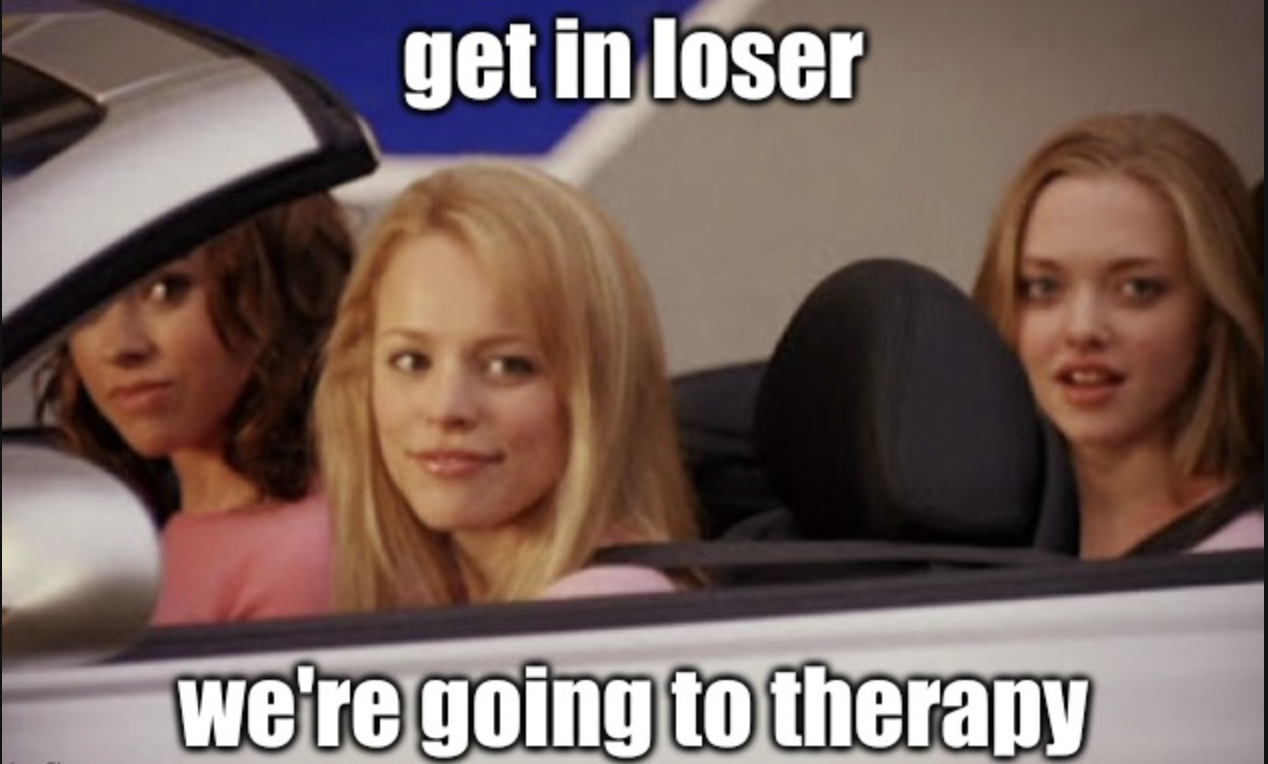The Age of Soft Avoidance- Why the World Needs “Meaner” Therapists Right Now
Shoutout to friedpickles69 on imgflip for this gem of an image.
Let’s get one thing straight: I’m not actually mean. I don’t shame, humiliate, or berate my clients (that’s a different type of therapy that I don’t offer, but respect those that do! IYKYK). But I do tell the truth. And sometimes, the truth stings in the moment. In a world obsessed with comfort, validation, and curated softness, I offer something radical—honesty.
I didn’t choose the name The Mean Therapist because I enjoy conflict. I chose it because too many people have sat in therapy for years without anyone looking them in the eye and saying, “How did you contribute here?” or “You’re avoiding the hard stuff,” or even just, “You already know what to do—you’re just scared and that’s ok.” These moments might sound harsh, but they’re rooted in something deeper than comfort: respect. I believe my clients can handle the truth, and more importantly, I believe the truth is what actually helps them respect themselves more, too.
knowing when avoidance is helpful or harmful is key
We’re living in a time where emotional language is everywhere, but emotional resilience is harder to find. Pop psychology tells us to “honor our feelings,” “protect our energy,” and “cut out toxicity”—and sometimes, that’s great advice. But when we only surround ourselves with messages that coddle and cushion, we risk staying stuck. I see the frequent use of spiritual, “woo woo”, or therapy language as a weapon of bypass or avoidance from the real work of examinations, healing and hard conversations. We trade transformation for temporary relief.
Therapy isn’t supposed to be a weekly dose of “you’re doing amazing sweetie.” It’s supposed to challenge you. To poke at the story you’ve been telling yourself for years. To gently—but firmly—push you to stop waiting for the world to change and start taking accountability for your life.
The Power of Directness
What makes a “mean” therapist different is that we don’t dance around the truth. If I notice you’re lying to yourself, I’ll say so. If you’ve been playing the victim in every relationship, we’re going to talk about why. If you’ve been avoiding your grief, your anger, your loneliness—I’m not letting that slide just because it makes you uncomfortable.
This approach isn’t about being cold. It’s about cutting through the fog so we can get to the real work. And in a time where distraction is easier than ever and echo chambers are everywhere, having someone who is willing to challenge you—lovingly, respectfully, relentlessly—is invaluable.
Trust and Truth Go Together
Clients don’t come to me for fluff. They come because they’ve tried the “nice” therapist. They’ve vented for months and gotten validation, but no movement. They want something real. They want someone who can say the hard thing and still hold space for their pain.
The truth is, being honest with someone is a profound act of trust. I trust that my clients are capable of hearing it. I trust that my clients are strong enough to sit in the discomfort. And I trust that on the other side of that discomfort is growth, clarity, and freedom.
This Work Isn’t for Everyone—And That’s Okay
Not everyone is ready for direct therapy. Some people need time to build that safety. But for those who are tired of circling the same issues, who are ready to look in the mirror and do the hard, liberating work of change—this is the place. I’m not here to be liked. I’m here to help you get unstuck.
So if you’re looking for a therapist who will always agree with you, tell you what you want to hear, or help you avoid the truth—keep looking.
But if you’re ready to hear the thing no one else will say out loud—the thing that just might set you free—pull up a chair.
